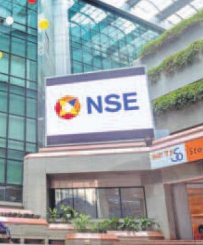Ram Sahgal
Retail investors dabbling in derivatives often get the short end ofthe stick. But few know that they lose out to proprietary traders or props—brokers trading on theirown account with sophisticated algorithms. Prop traders pay hefty sums toplace theirserverracksin the exchange data centre (called colocation), something retail investorscan’t do. Thisenables props to access data of price movements fractions of a second quicker than retail investors, who use Internet-based trading and mobile apps. The National Stock Exchange of India (NSE) charges X12 lakh to colocate a (full rack) server in its data centre, plus connectivity charges and taxes. The exchange started the colocation facility in 2009 so that brokers located in, say, Mumbai and Chennai would getdatafeedsat thesametime, despite the Mumbai broker being closer to the exchange’s Servers. Interestingly, exchange data shows that colocation-based trades accounted for 60.7% of gross turnover in April-De- The NSE charges prop traders %12 lakh to colocate a serverin its data centre. PTI cember 2023, up 247 basis points (bps) from a year earlier, followed by mobile-based trade at17.6% (up 22 bps), Internetbased tradesat 8.9% (down 106 bps)and algo trades1.1% (up 45 bps). A basis point is one-hundredth of a percentage point. Prop was the only category whose market share on NSE— the world’s largest derivatives exchange by contracts—has risen in the current fiscal year through December. Their share of gross turnover surged to 59.5% in April-December 2023, up a whopping 783 bps from a year ago. Individual or retail investors’ market share dipped by 163 bps to 26.8%, TURN TO
PAGE 4











0 Comments